Novatian: Schismatic Saint or Heretic?
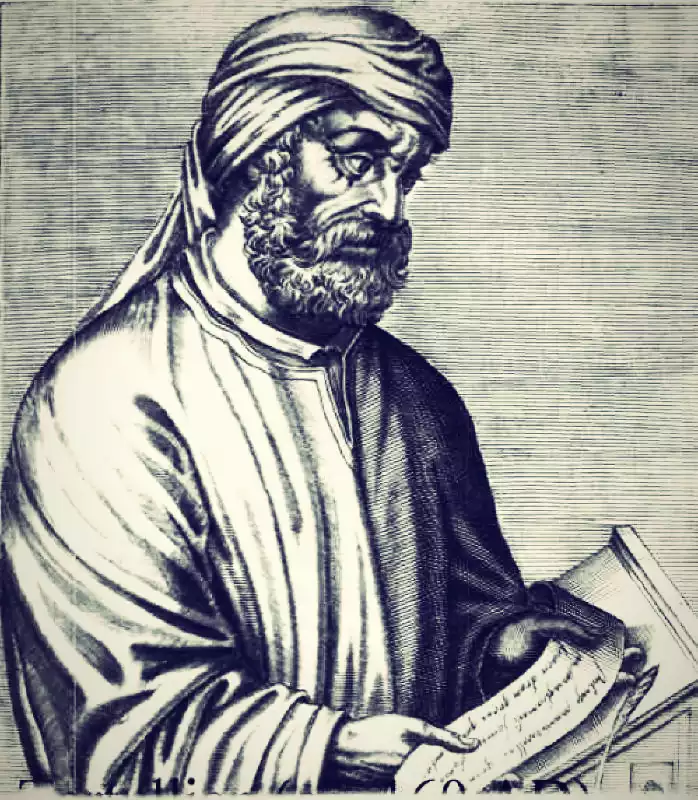
Novatian (c. 200-258) was a Roman theologian and priest who held unbending views on church purity and penance. After failing to be elected Bishop of Rome in 251, Novatian broke ties with the mainstream church and formed a dissident sect. Despite his controversial split, Novatian made important contributions to early Christian theology. Novatian’s Rigorous Theology […]
Divide | διαιρέω (diaireō) | Verb
Etymology and Semantic Analysis The English term ‘divide’ traces its roots to the Latin ‘dividere’, meaning to separate or distribute. However, in the biblical context, the Greek word often translated as ‘divide’ is διαιρέω (diaireō). This term, primarily found in the New Testament, conveys the idea of distributing, separating, or dispersing. The semantic range of […]
Biblical Distress | θλῖψις (thlipsis) | Noun
Etymology and Semantic Analysis The term ‘distress’ in English translations of the Bible mainly corresponds to the Greek word θλῖψις (thlipsis), a noun that signifies pressure, affliction, or tribulation. This word is deeply evocative, painting a picture of being compressed or squeezed, signifying severe mental or societal pressure. The usage of θλῖψις is widespread in […]
Descend in the Bible | καταβαίνω (Greek Verb)
Etymology and Semantic Analysis The English word ‘descend’ is derived from the Old French ‘descendre’ and Latin ‘descendere’, meaning to come or go down. In the Greek New Testament, the verb ‘καταβαίνω’ (katabaino) carries this meaning. This term appears in various contexts, such as physical descent from a place (John 4:47), divine intervention (Matthew 3:16), […]
110 AD Ignatius of Antioch coins term “Catholic” meaning Universal Church
In the pivotal year of 110 AD, a momentous term was articulated by Bishop Ignatius of Antioch that would indelibly shape the Christian lexicon: ‘catholic’. Derived from the Greek word ‘Καθολική’ (katholikē), it elegantly fuses ‘κατά’ (kata, ‘about’) and ‘ὅλος’ (holos, ‘whole’) to signify ‘universal’ or ‘concerning the whole’. This linguistic gem encapsulates the essence of inclusivity and totality, a concept that Ignatius fervently embraced and propagated. Born around 35 AD and embracing martyrdom in 108 AD, Ignatius stands as a monumental figure in early Christian history. His profound ideation of a church that transcends geographical and cultural confines, serving as a spiritual haven for all, marked a significant evolution in the Church’s understanding of itself. Through his teachings and writings, particularly during his journey to martyrdom, Ignatius of Antioch championed a vision of the Church as a universal entity, a community unbounded by earthly divisions, united in faith and purpose.
The First Epistle of John
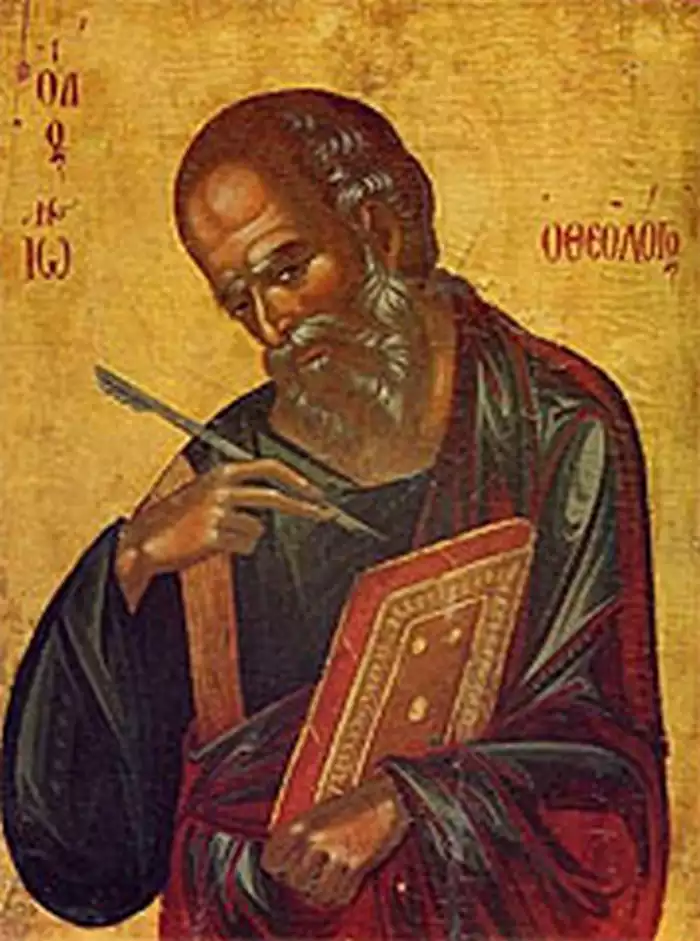
Translation in British English 1:1 From the outset, that which we have intimately heard, beheld with our own eyes, gazed upon, and our hands have touched, concerning the Word of life; 1:2 For indeed, the life was revealed, and we have seen, testified, and proclaimed to you the eternal life, which was with the Father […]
Tertullian: Polemics and Piety Interwoven
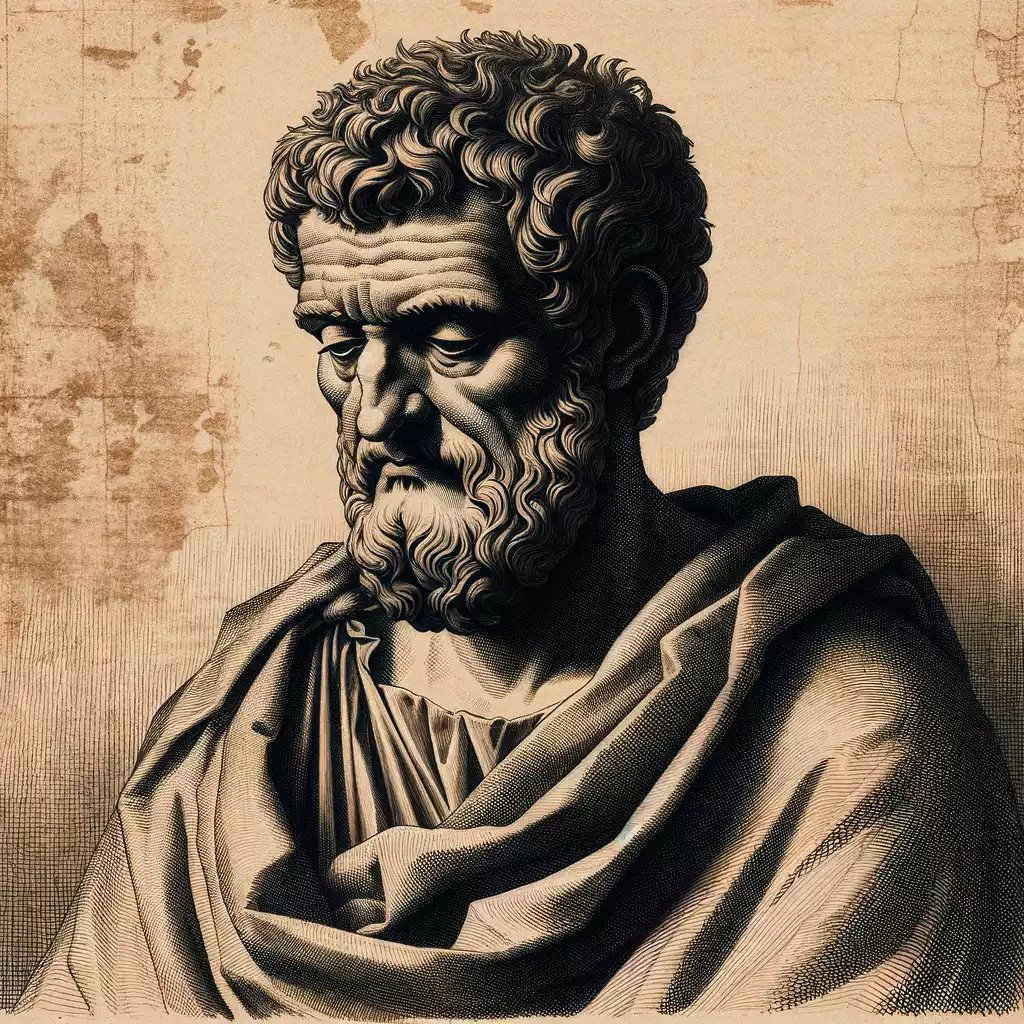
Tertullian, a titan in early Christianity’s chronicles, lived circa 155 to 240 AD. His odyssey, from rhetorical eminence to ardent Christian apology, has enthralled academics and believers. A native of intellectual hub Carthage, Tertullian’s initial exposure to Roman culture and ideals profoundly molded his worldview. His acceptance of Christianity constituted a pivotal turn, ushering prolific […]
The Epistle of Paul the Apostle to the Colossians, Colossians Translation
Translation in British English 1:1 Paul, an apostle of Jesus Christ by the decree of God, alongside Timotheus, our brother, 1:2 To the devout and loyal brethren in Christ at Colosse: May grace and peace be bestowed upon you, from God our Father and the Lord Jesus Christ. 1:3 We express our gratitude to God, […]
The First Epistle to the Corinthians
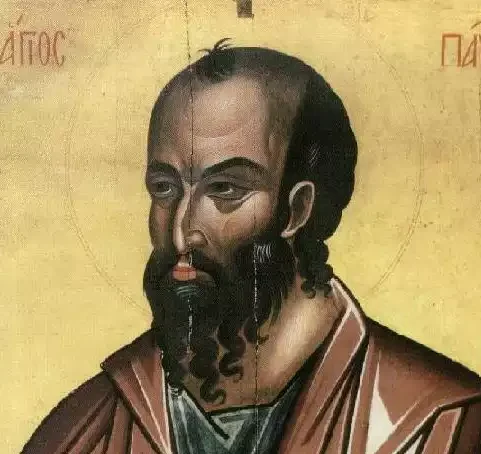
The First Epistle of Paul the Apostle to the Corinthians 1:1 Paul, summoned as an apostle of Jesus Christ by God’s will, and brother Sosthenes, 1:2 To the congregation of God in Corinth, sanctified in Christ Jesus, called to be holy, together with all those everywhere invoking the name of our Lord Jesus Christ, both […]
The Epistle of Paul the Apostle to the Romans | Book of Romans
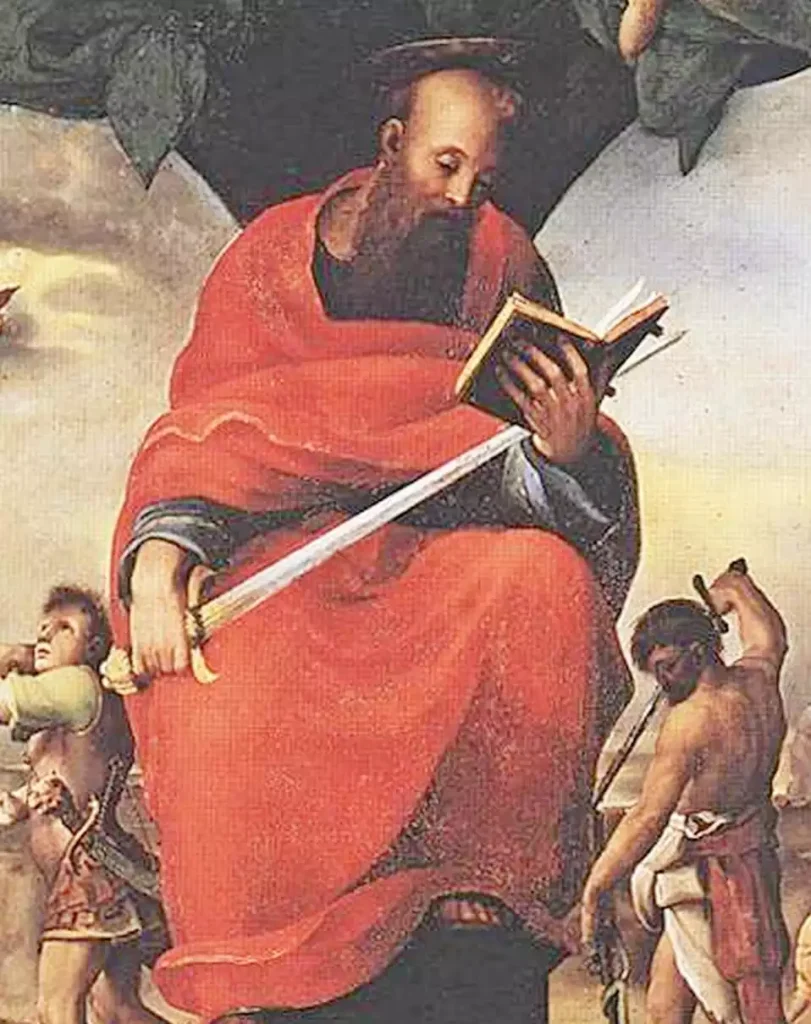
Translation from the original Greek text 1:1 Paul, a bondman of Jesus Christ, summoned as an apostle, set apart for the gospel of God, 1:2 A gospel foretold by his prophets in the sacred writings, 1:3 About his Son, Jesus Christ our Lord, who was born from the lineage of David according to the flesh; […]
Marcian, Emperor: The Council of Chalcedon’s Architect
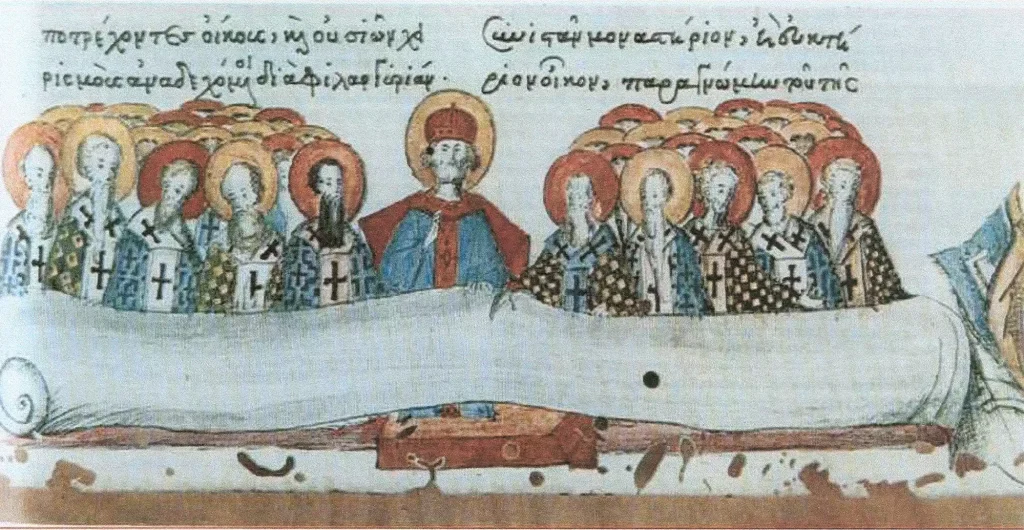
Emperor Marcian, a figure etched in the annals of history for his pivotal role in the Council of Chalcedon, ruled as the Byzantine Emperor from 450 to 457 AD. His tenure as emperor was marked by a period of profound theological and political change, shaping the very core of Christian orthodoxy. Born in a time of great turmoil and uncertainty, Marcian emerged as a beacon of stability and conviction. His reign, though brief, was a testament to his unwavering commitment to uphold the principles he believed in. Marcian’s influence extended far beyond the boundaries of his empire, leaving an indelible mark on the course of Christian history. His legacy is forever intertwined with the Council of Chalcedon, a landmark event that defined the Christological dogma and set the stage for future theological discourse.
Biblical Faithfulness | Πιστός (Pistos) | Adjective
Definition The English word “faithful” primarily conveys the sense of being true to one’s word or commitments, showing a steadfast allegiance or consistent loyalty. In the biblical context, it often implies trustworthiness and reliability in relationship to God or the things of God. Biblical Occurrences in the New Testament Matthew 24:45: “Who then is a […]
Theosis | Understanding Eastern Orthodox Christian Theology
Theosis, a foundational concept in Eastern Orthodox Christianity, represents a transformative process aimed at achieving unity or likeness with God. This divine principle, rooted deeply in the teachings of the Eastern Orthodox Church and Eastern Catholic Churches, underscores the ultimate purpose of human existence as envisioned in Christian theology. The process of theosis involves both […]
Quaternions in the Bible | Greek: τετράδιον (tetradion) | Noun
Definition The term “quaternions” in Biblical context refers to a group of four soldiers. This word is specifically used in the New Testament to describe the Roman military practice of assigning four soldiers to guard a prisoner. The concept of a quaternion is intrinsically linked to the Roman military system and its administrative practices. Various […]
Paschasius Radbertus, Saint | Carolingian Theologian
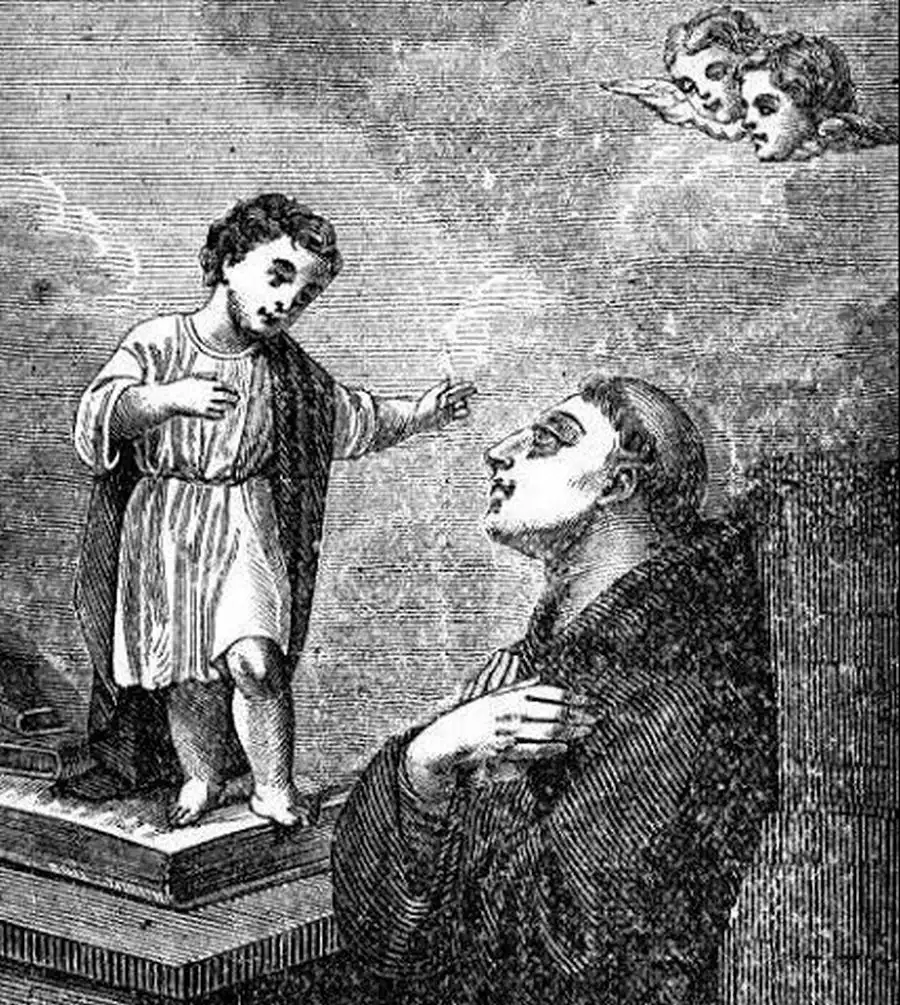
Saint Paschasius Radbertus, a pivotal figure in the Carolingian Renaissance, was born circa 785 and passed away in April 865. His theological work, particularly regarding the doctrine of the Eucharist, has significantly shaped Christian thought. As a monk and later abbot of Corbie Abbey, Radbertus dedicated his life to theological study, leaving an indelible mark […]
Deuteronomy Translation
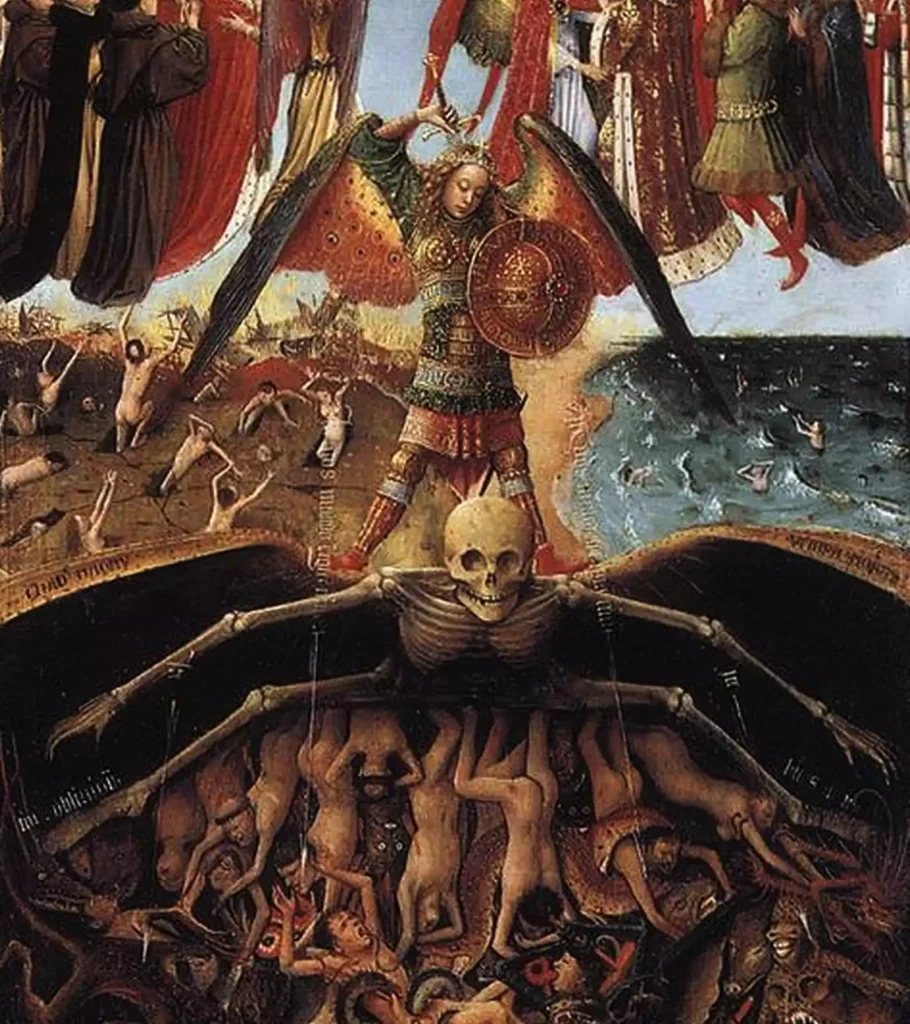
Deuteronomy 1:1 Here are the words Moses spoke to all Israel beyond Jordan in the wilderness, on the plain opposite the Red Sea, between Paran, Tophel, Laban, Hazeroth, and Dizahab. 1:2 (It takes eleven days to go from Horeb to Kadeshbarnea by the Mount Seir route.) 1:3 In the fortieth year, on the first day […]
431 AD Third Ecumenical Council of Ephesus
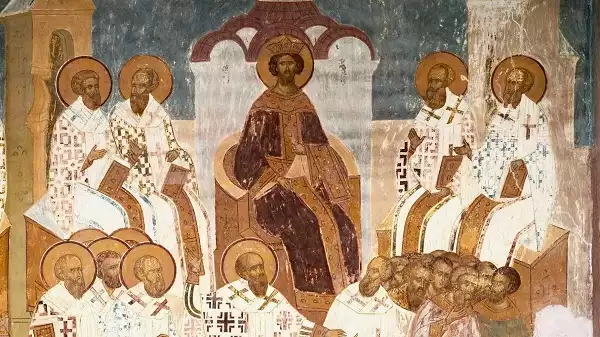
Condemnation of Nestorianism and Affirmation of Mary as Theotokos In 431 AD, a pivotal event in Christian history occurred: the Third Ecumenical Council of Ephesus. This Council, a significant gathering of Christian bishops, was convened to address the growing controversy surrounding Nestorianism, a doctrine named after Nestorius, then Patriarch of Constantinople. Central to the Council’s […]
Eastern Rite Catholic Church
The Eastern Rite Catholic Church, a vital branch of Catholicism, preserves the liturgical, legal, and spiritual traditions of Eastern Christian Churches. This Church, in full communion with the Roman Catholic Church, upholds a distinctive amalgamation of Eastern and Western Christian practices. Liturgical Traditions and Spiritual Practices In the Eastern Rite Catholic Church, liturgical traditions are […]
Malankara Church
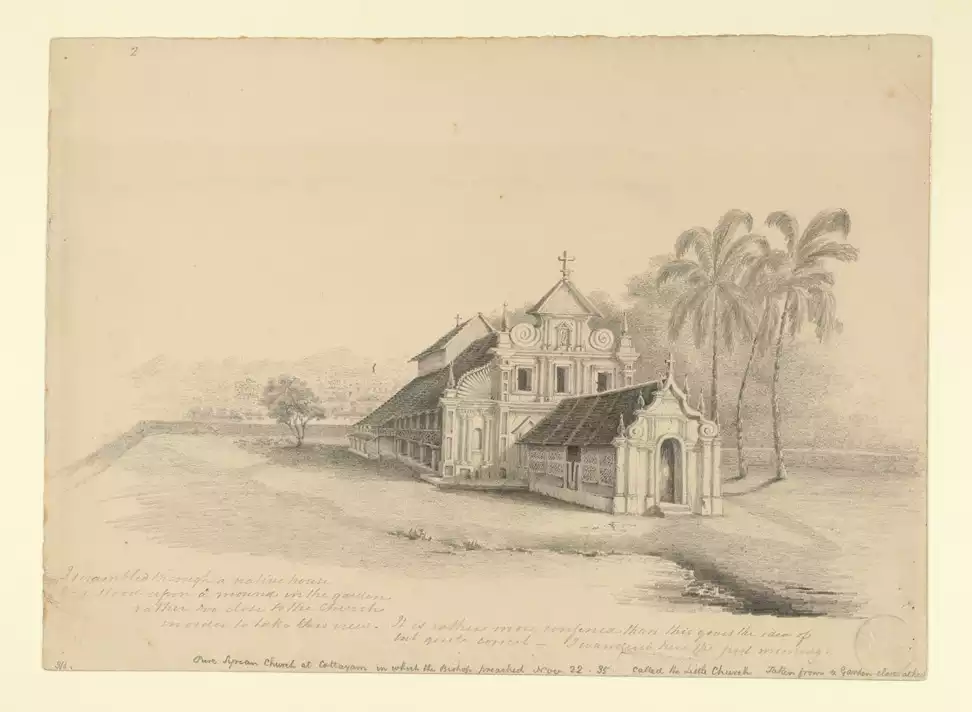
The Malankara Church, an ancient Christian community in India, traces its origins to the evangelical undertakings of St. Thomas the Apostle. According to tradition, St. Thomas arrived on the Malabar Coast in AD 52, establishing seven churches and laying the foundations for Christianity in the region. This historical account, while not explicitly detailed in the […]
Apostolic Succession | Cornerstone of Ecclesiastical Continuity
Historical and Etymological Genesis of Apostolic Succession Apostolic succession, a term deeply rooted in Christian ecclesiology, refers to the continuous transmission of spiritual authority through the bishops, dating back to the apostles of Jesus Christ. This concept, pivotal in maintaining doctrinal purity and organizational unity in various Christian denominations, finds its origins in the early […]
Oriental Orthodoxy | An Insightful Overview
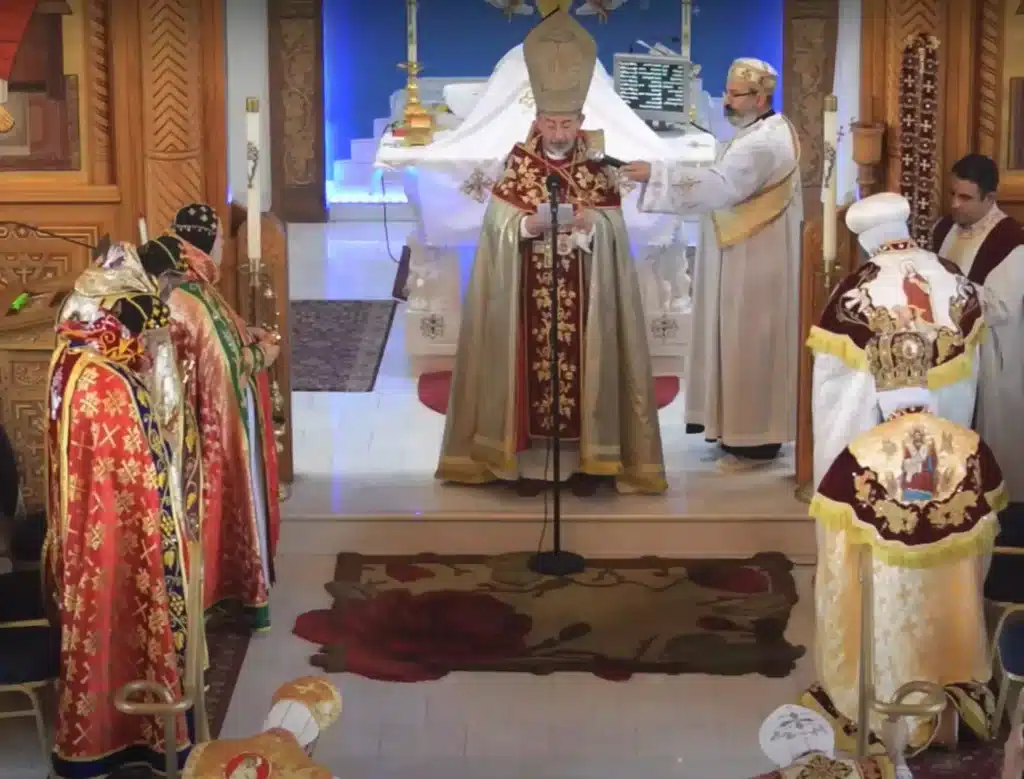
Oriental Orthodoxy refers to a communion of Christian churches with ancient roots in the Eastern part of the Roman Empire. Characterized by its adherence to the earliest doctrines and practices of Christianity, Oriental Orthodoxy diverges from both Roman Catholicism and Eastern Orthodoxy. This divergence primarily occurred in the 5th century, following the Council of Chalcedon […]
Assyrian Church of the East | A Comprehensive Overview
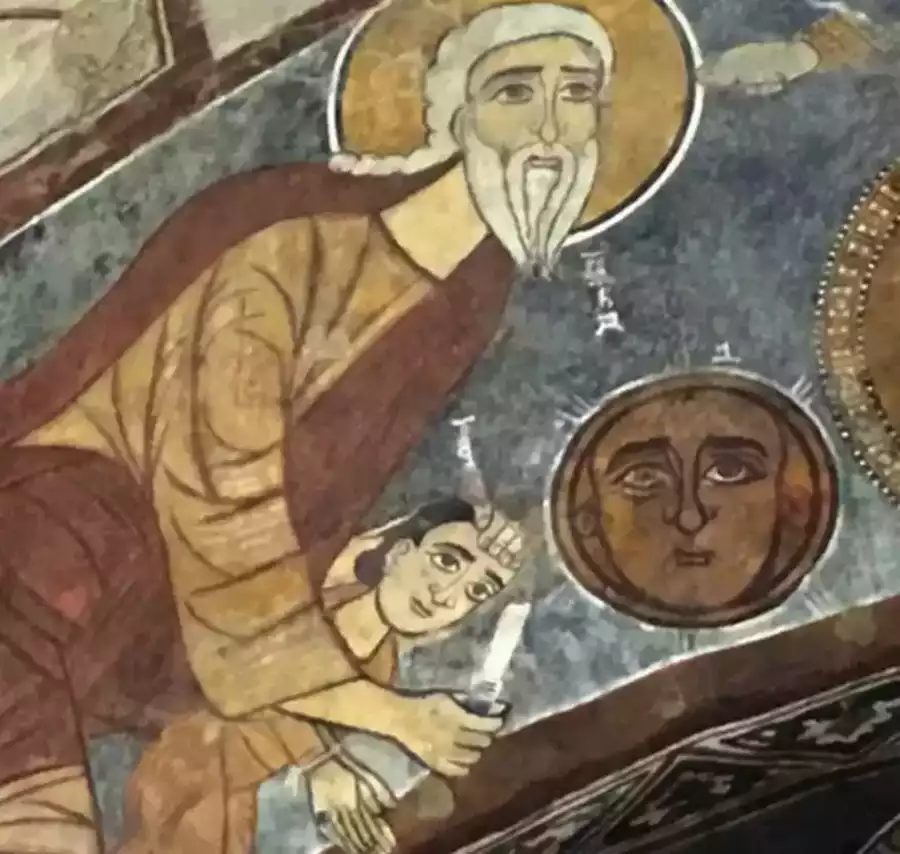
The Assyrian Church of the East, often synonymous with historical and theological richness, stands as a distinctive Christian denomination. With roots deeply entrenched in the early Christian communities of the Near East, it embodies a blend of ancient traditions and theological interpretations unique to its followers. Notably, its establishment and evolution have been pivotal in […]
Methodist Church | An Overview of Its History and Beliefs
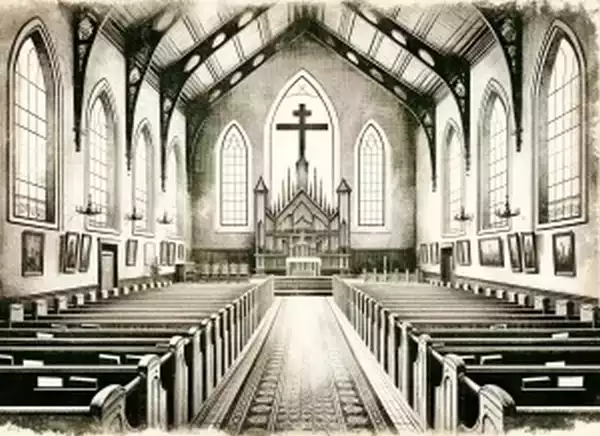
The Methodist Church, with its rich heritage and profound impact on Christian theology, traces its origins to the 18th century. Founded by John Wesley, born in 1703 and deceased in 1791, this denomination grew out of the Anglican Church, distinguishing itself through unique doctrinal emphases and organizational methods. Its history is marked by a commitment […]
Coptic Church | A Comprehensive Overview of Its History and Beliefs
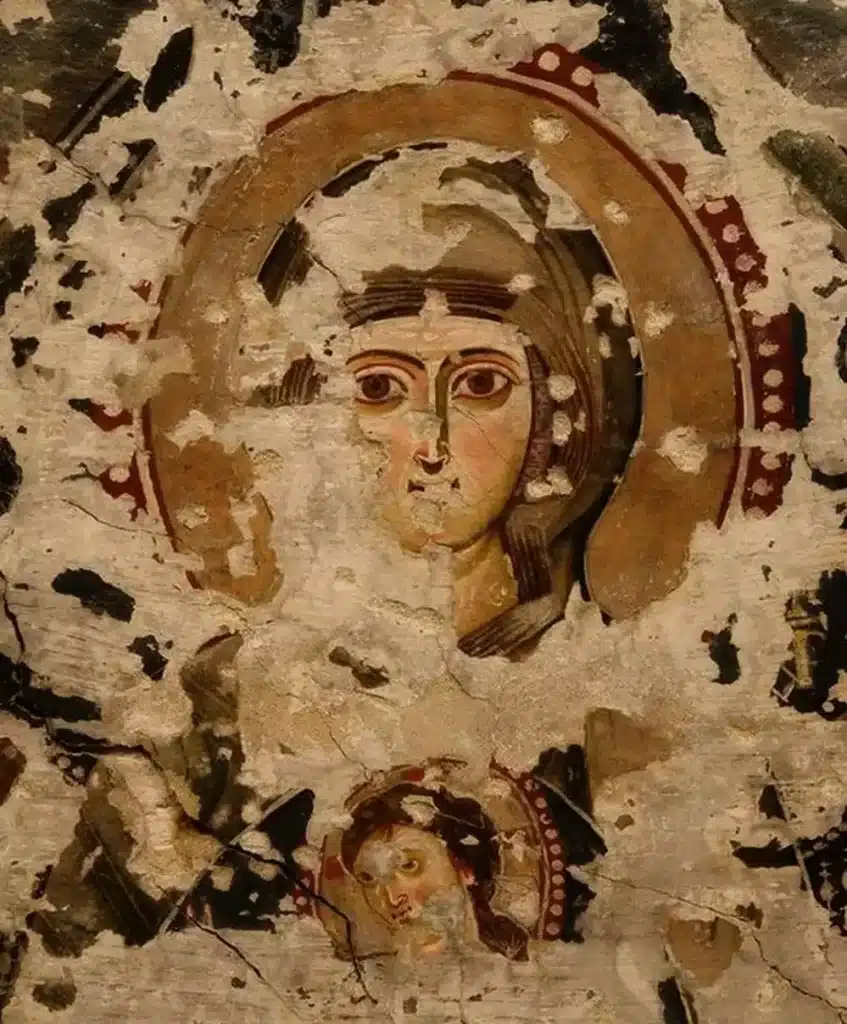
The Coptic Church, an ancient Christian denomination, finds its roots in Egypt in the 1st century AD. Traditionally attributed to the evangelistic work of Saint Mark, it bears a rich history that intertwines with the cultural and religious tapestry of Egypt. Renowned for its unique liturgical language, the Coptic language, this church has stood as […]
Eastern Orthodox Church | Overview and Historical Context
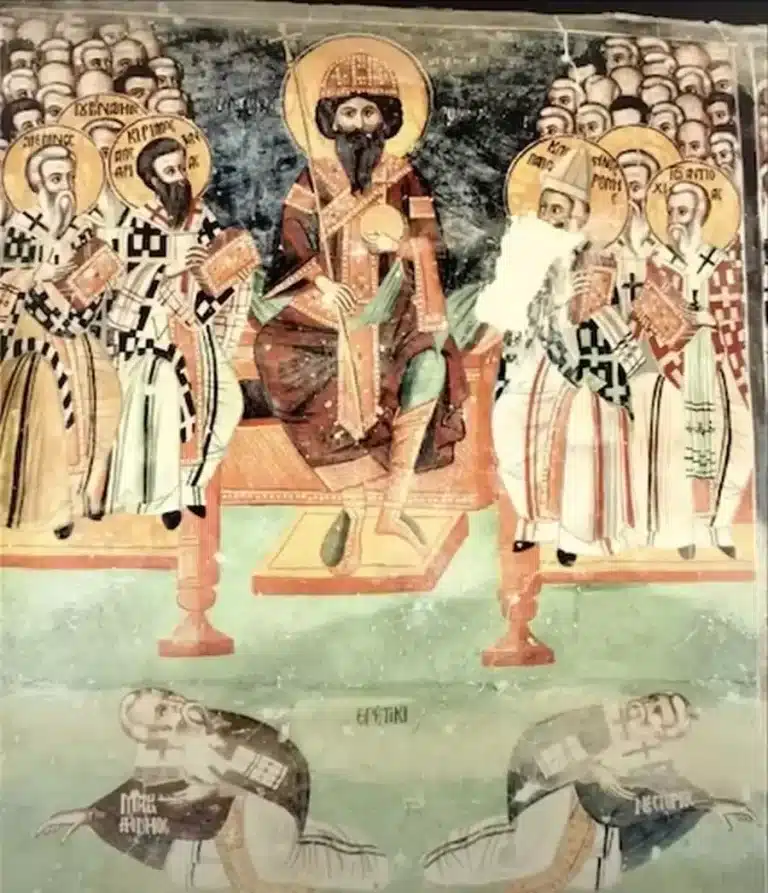
The Eastern Orthodox Church holds a profound and enduring presence in the religious landscape. Its roots trace back to the earliest Christian communities, with a pivotal role in shaping spiritual and cultural histories across Europe and Asia. This church, known for its rich theological depth and liturgical beauty, marks a distinct path in the broader […]
